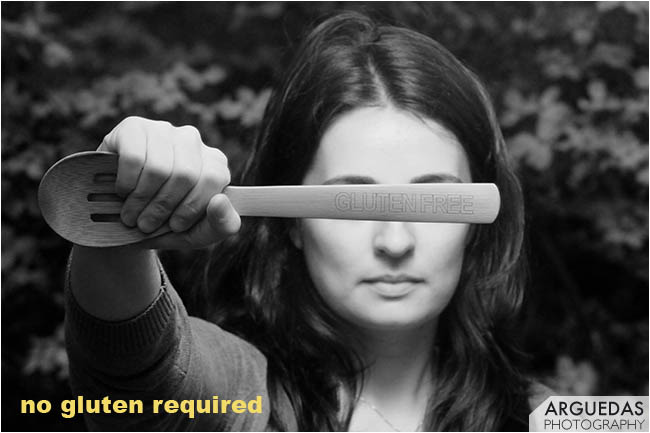I commented on a post made by
GlutenDude that really struck me. I have been very lucky in being surrounded by friends who not only "get it" when it comes to gluten and cross-contamination, two households I regularly frequent have a "Kristina cupboard" filled with gluten free supplies and utensils. I know how rare this is, and how lost and alone I first felt when I was diagnosed and afraid to eat anywhere that wasn't in my kitchen with my safe tools and foods.
If you, or a loved one is newly diagnosed, it can be very very hard to get the information and support you need. My response to a newly diagnosed person whose family is not supportive follows.
***
Please know you are not alone. I ran into similar issues after being diagnosed. Right now, in the US, "we" tend to not consider people ill unless we can see it. If you get chicken pox you are sick, if you have depression, your illness is questioned or people don't believe you at all. While throwing up (my favorite symptom) is quite visible, a lot of the hundreds of symptoms of active celiac disease are invisible. So know that our current culture/society does not understand or validate what you are going through. That does not make it right, but it is important to know it is happening all around.
Food, buying it, preparing it, eating it, is very social. We know who are friends and family are by who we allow to share a meal with us. When someone refuses to eat what is at the dinner table - for medical reasons, ethical reasons, religious reasons, or flavor reasons - they are "rejecting" the group. I am not saying this is right or wrong, but that is how our societies are set up. Historically, we don't have a lot of experience with this. It is a new thing. We as "food outsiders" and "them" as people without new dietary restrictions have to figure out how to navigate this together. That does not mean it is right for them to shame you, or blame you, but their acting out is because they are HURT. They feel rejected by you rejecting their foods/venues/events. It is a grown up temper tantrum, and it sucks for EVERYONE involved.
What you can do:
GET SUPPORT - I couldn't make it to local celiac support group meetings because I didn't have a car. I found an amazing network of people on celiac.com in the "forum" section. (I no longer participate, but that is a different story)
KEEP GOOD PEOPLE CLOSE - if you have even one friend, family or loved one who "gets it" or is TRYING to learn, hang out with her (or him)! Do fun things together!
For those who don't get it, KEEP IT SIMPLE. You are not going to change their minds with one more factoid of information. Taking the "sex ed" approach to answering just what people ask is often helpful. If they just want to know why you aren't noshing down on egg rolls, you can just say "I cannot eat gluten". If people want more information about villi, they will ask you. Trust me, they will ask.
DO WHAT YOU WANT - Eat beforehand, bring your own food, participate in whatever you want but keep yourself safe. Remember you get to say "I don't want to talk about it now" whenever you want or need a break. This disease can make you feel like you have NO control. You do. And remember to take the time to do what you want, and how you want to do it.
This is redundant, but know YOU ARE NOT ALONE. This is the single biggest, most important thing I can tell any newly diagnosed person. Reach out to people who understand. We will talk about poop, families, work parties, holidays, missing foods (PIZZA and BEER), reading rx labels, and there is a lot less judgement. You will be amazed at the conversations, and sometimes friendships, that happen in the specialty food isles of grocery stores.
If you are feeling alone, know you are not. If you are missing something - ask others for recommendations. Your gluten-free peers are more often than not more educated than medical professionals and can and WANT to help.
This is not fair or easy. You are a champ for reaching out for advice.
With lots of love,
Kristina



